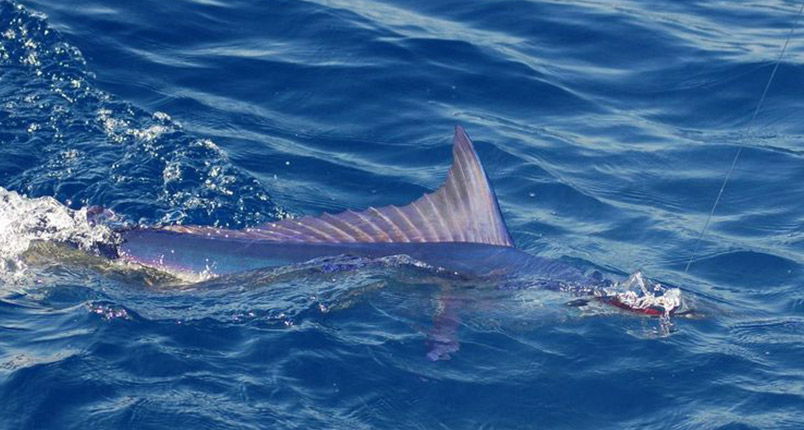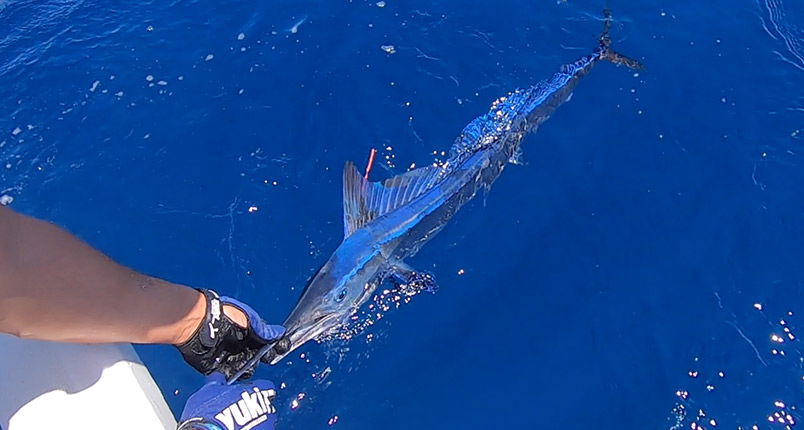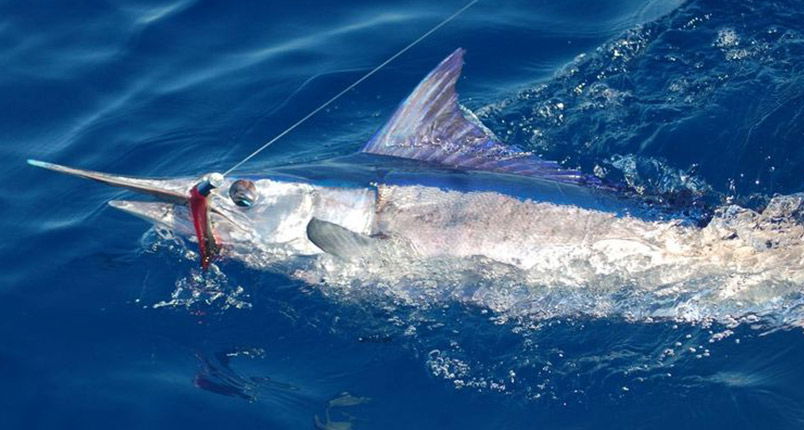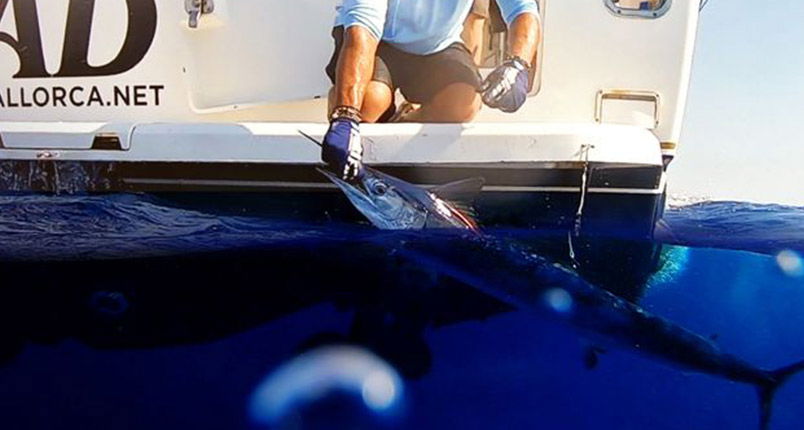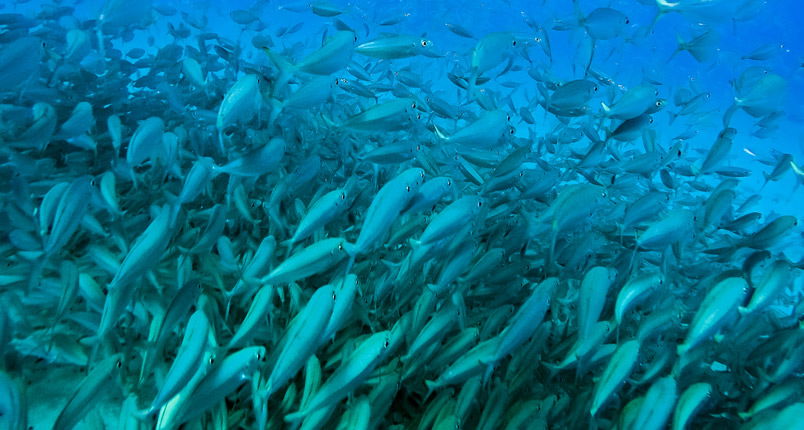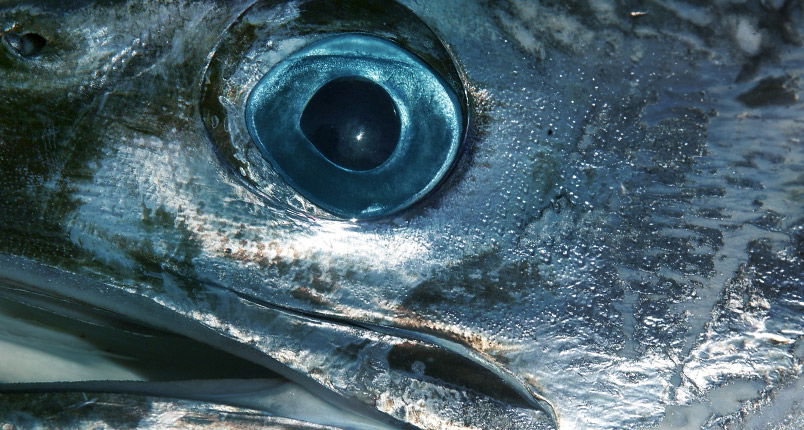The spearfish is a species of billfish with four visually and genetically distinct subspecies. The four subspecies are the longbill spearfish, shortbill spearfish, roundscale spearfish, and Mediterranean spearfish. Like other billfish, all spearfish have an elongated bill, prominent dorsal fin, and sleek bodies. There is a lack of research and data surrounding specific spearfish behaviors and characteristics. Additionally, the roundscale spearfish was just discovered within the past two decades, after years of misidentification as white marlin.
